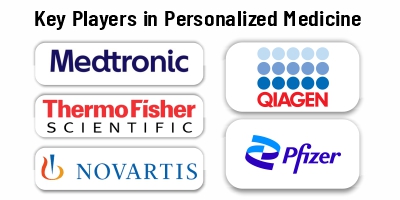Subscribe our newsletter
Please Subscribe our news letter and get update.

Personalized medicine has been a buzzword in the healthcare industry for several years now, and for good reason. As technology continues to advance and our understanding of genomics grows, personalized medicine is transforming the way we diagnose, treat, and prevent disease. In this blog, we will explore the transformation in healthcare due to personalized medicine and how it is revolutionizing patient care.

Personalized medicine, also known as precision medicine, is a medical approach that takes into account an individual’s unique genetic makeup, environment, lifestyle, and other factors that can influence health outcomes. This approach aims to provide tailored healthcare solutions that are personalized to the individual, rather than a one-size-fits-all approach.
The rise of personalized medicine has been made possible by advancements in genomics and technology, including genetic sequencing and big data analytics. By analyzing an individual’s genetic information, healthcare providers can identify specific genetic mutations or variations that may be linked to certain health conditions, allowing for earlier diagnosis and more targeted treatment.
The shift towards personalized medicine is transforming the healthcare industry in several ways:
Personalized medicine allows healthcare providers to identify genetic mutations or variations that may increase an individual’s risk of developing certain diseases. By identifying these risk factors early on, healthcare providers can take proactive measures to prevent the onset of the disease or catch it at an early stage when it is more treatable.
For example, genetic testing can identify individuals who are at a higher risk of developing certain types of cancer, such as breast or ovarian cancer. These individuals can then be monitored more closely or undergo preventative measures such as surgery to reduce their risk of developing the disease.
Personalized medicine allows for more targeted treatment plans that are tailored to an individual’s unique genetic makeup. By identifying specific genetic mutations or variations, healthcare providers can determine the most effective treatment plan for a patient, avoiding a trial-and-error approach.
For example, personalized medicine can help identify the most effective medication for a patient with a certain type of cancer. By analyzing the genetic makeup of the cancer cells, healthcare providers can determine which medication is most likely to be effective and avoid treatments that are unlikely to work.
Personalized medicine can lead to improved patient outcomes by providing more effective treatments and reducing the risk of adverse reactions. By tailoring treatment plans to an individual’s unique genetic makeup, healthcare providers can provide more targeted care that is better suited to the patient’s needs.
For example, personalized medicine has been shown to improve outcomes in patients with cystic fibrosis. By identifying specific genetic mutations, healthcare providers can tailor treatment plans to the individual, resulting in improved lung function and overall health.
While personalized medicine offers numerous benefits, there are also several challenges to implementing this approach in healthcare:
One of the biggest challenges in implementing personalized medicine is the cost. Genetic testing and other personalized medicine technologies can be expensive, which can limit access for some patients. Additionally, some insurance providers may not cover the cost of these tests, making them inaccessible to many patients.
Another challenge is privacy and ethics. As genetic testing becomes more widespread, concerns about the privacy and security of genetic information are growing. Additionally, there are ethical considerations around the use of genetic information, such as the potential for discrimination based on genetic predispositions to certain conditions.
There is also a limited amount of data available on many genetic variations, which can make it difficult to develop personalized treatment plans. As more research is conducted and more data becomes available, personalized medicine is likely to become more effective.
Pfizer Inc., Qiagen NV, Thermo Fisher Scientific Inc., Novartis AG, and Medtronic PLC are some of the top players in the precision medicine industry.

Personalized medicine is transforming the healthcare industry, offering numerous benefits including early diagnosis and prevention of disease, tailored treatment plans, and improved patient outcomes. While there are challenges to implementing this approach, including cost and privacy concerns, the potential benefits make it a promising area of research and development in healthcare.
As technology continues to advance and our understanding of genomics grows, personalized medicine is likely to become even more effective in improving patient outcomes and transforming the way we approach healthcare. By harnessing the power of personalized medicine, we can move towards a more tailored and effective approach to healthcare that is personalized to each individual’s unique needs and genetic makeup.
Authored by – Guniyal Bagga